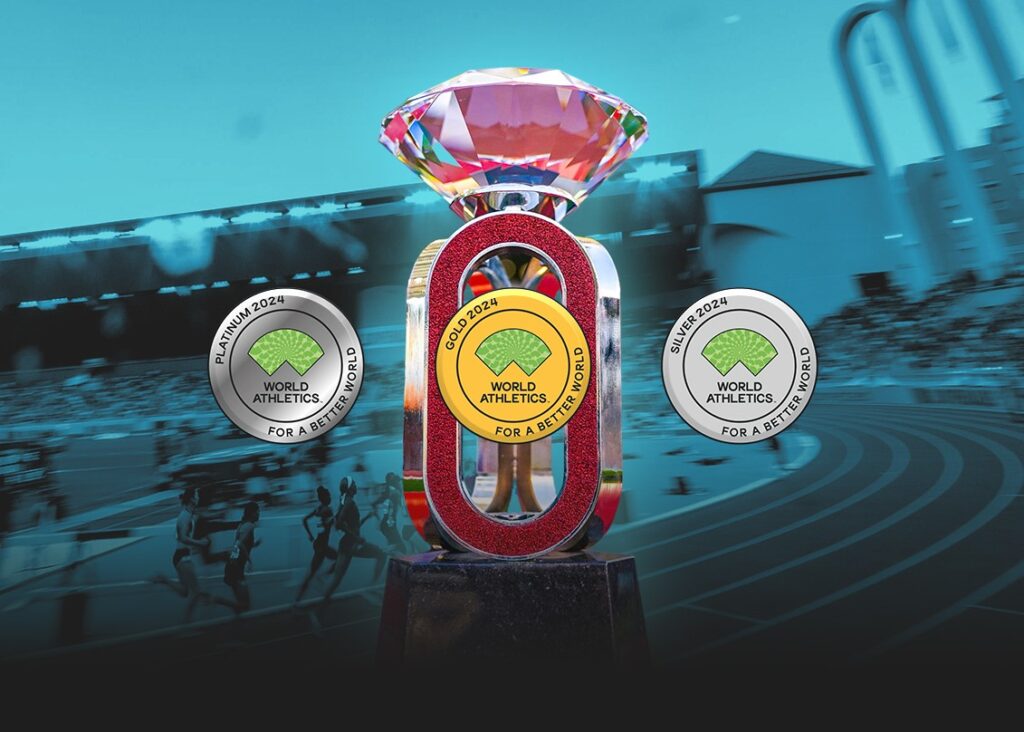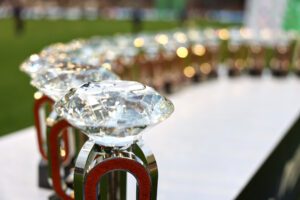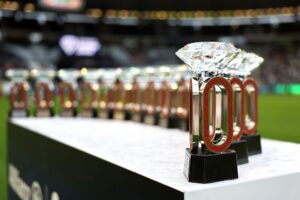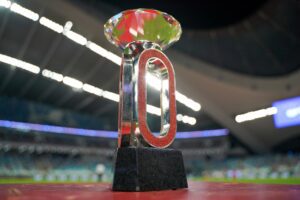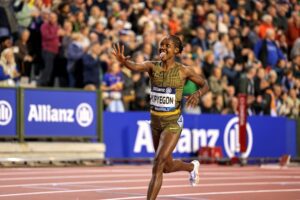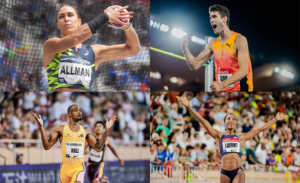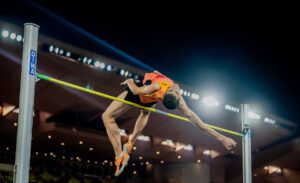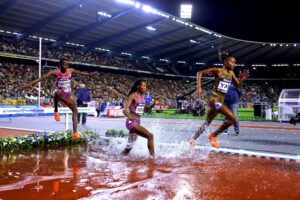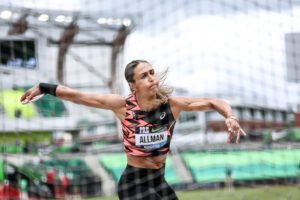Five highlights from the ABW Standard year 1 review
When the Wanda Diamond League kicks off its 16th season in Xiamen this weekend as the world’s premiere one-day meeting athletics circuit, it will also embark on its first as the sport’s pioneering competition group on the sustainability front.
Each of the 15 Wanda Diamond League meetings held in 2024 reported their sustainability progress against the Athletics for a Better World (ABW) Standard, the tiered evaluation system implemented by World Athletics last year that measures an event’s achievements in sustainable delivery. Underscoring the league’s commitment to sustainability principles, 10 of the meetings reached a certificate recognition.
The Oslo Bislett Games achieved platinum level, the first one-day meeting to reach the ABW Standard’s highest tier.
The Welklasse Zurich, like Oslo an athletics pioneer in sustainable delivery, achieved gold. Monaco’s Herculis meeting achieved silver, while the Allianz Memorial Van Damme in Brussels, Stockholm’s Bauhaus Galan and the Kamila Skolimowska Memorial in Silesia all reached bronze.
The Wanda Diamond League Xiamen, Athletissima Lausanne, the Meeting de Paris, and the London Athletics Meet all reached the recognised event level, the tier that all events were encouraged to target during the standard’s first year.
Focus on fan mobility
The ABW Standard consists of 55 action areas that address efforts to minimise an event’s environmental impact and maximise its social and local economic benefits.
Organisers of more than 100 events that took place last year reported their sustainability achievements against the ABW Standard. An extensive review and analysis of its first year will be released in June; below are some of the highlights seen across the Diamond League last year beginning with efforts around fan mobility.
More than 400,000 spectators attended Diamond League meetings in 2024. Reducing the environmental impact of getting fans to an event is a key focus of the ABW Standard, with promising figures reported during the standard’s inaugural year.
More than three-quarters of the spectators in Oslo (80%), Zurich (75%) and London (75%) used public transit or active travel to reach the event. About two-thirds of attendees in Stockholm (68%), Xiamen (65%) and Monaco (62%) took a tram, metro, bus or bike and more than half did in Lausanne (52%). In Doha, 40% used public transportation, double the figure from 2023.
To encourage the use of public transit options, Zurich, Oslo, Lausanne, Monaco and Silesia offered ticketed spectators free transport to the event through partnerships with municipal and regional public transport service providers – a long-standing practice for some – while Brussels offered a discount fare for the first time.
To further reduce their CO2 emissions and to improve local air quality near event venues, events are increasingly including more fully electric vehicles in their fleets. In 2024 this was supported by Diamond League sponsor Zeekr.
One of the most noteworthy initiatives was a zero-emission transfer of 120 athletes, personnel and media from Oslo to Stockholm for the Bauhaus-Galan meeting in the Swedish capital. Electric buses transported everyone from the meeting hotel to Oslo’s central station, where specially booked trains awaited. The five-hour train journey ended at the central station in Stockholm, just a two-minute walk from the meeting’s main hotel. That one-way train journey released 247.46kg of CO2 equivalent into the atmosphere, 12 times less than the CO2e that would have been emitted if those 120 people flew, contributing to a substantial reduction in the event’s carbon footprint.
Impacts of food
An area where organisers can immediately reduce their environmental impact is through the food provided. The ABW Standard sets seven criteria to define a robust food management plan; three meetings – Oslo, Zurich and London – put six of those in action, providing a menu that was locally sourced, well balanced, offered vegetarian and vegan options, carefully managed food waste, and provided a donation scheme for any unused food.
Stockholm and Xiamen hit five criteria, and Silesia, Monaco, Paris and Brussels successfully delivered on four.
Powered by renewables
The ABW Standard looks at the type of power that is used by venues. Some Diamond League events are scoring exceptionally well, using every tool available to them.
Through power provided by solar panels on their roofs, strong renewable grid infrastructures in their cities and renewable energy tariff schemes, the Zurich and Oslo events receive more than 90 percent of their power from renewable energy sources. Renewable energy tariffs, certificate systems that ensure energy has been generated from renewable sources, also power stadiums in Stockholm (100%), Lausanne (90%) and Monaco (75%).
Commitment to local economic impact
The ABW Standard also examines where events are purchasing or renting their goods and services. Here too, meetings are also showing a strong commitment to working with local businesses and suppliers to maximise local economic benefits. One hundred percent of the Zurich’s suppliers are located within 100 kilometres of the venue. For Oslo that figure is nearly 93%, for Lausanne 84% and Monaco 73%. Xiamen and London report 63% and 61% respectively.
Athlete engagement
Involving the stars of the day, the meeting’s athletes, around sustainability initiatives is also an important piece of the ABW Standard pie.
Karsten Warholm, Jemma Reekie and Molly Caudery led fellow athletes at tree-planting events, the former in Oslo an the latter two in Doha. Wu Yanni and Zhu Yaming served as the sustainability ambassadors in Xiamen, sharing initiatives on social media platforms while Amandine Brossier and Melina Robert-Michon spearheaded athlete initiatives in Paris. And a video created by Zurich’s sustainability ambassador Ajla Del Ponte, who is also part of the World Athletics Champions for a Better World programme, received more than 1200 likes on Instagram.
About the ABW Standard
In January 2024, sustainability reporting through the Athletics for a Better World Standard became a requirement for most global elite competitions managed or awarded by World Athletics. When fully adopted, the ABW standard will be the largest sustainability evaluation system in the sport industry.
